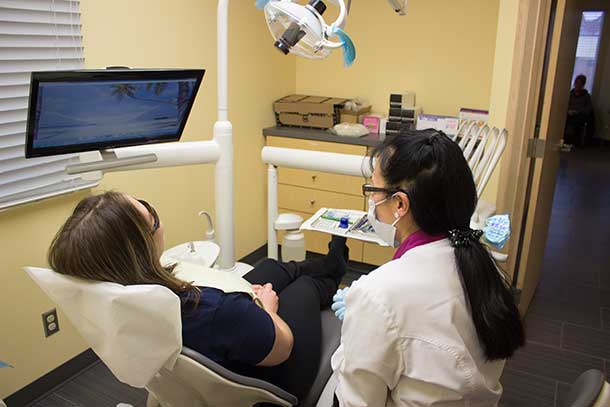Maintaining optimal oral health is vital to overall wellness, including your dental wellbeing. Good dental hygiene habits include brushing and flossing on a daily basis as well as getting regular dental check-ups.
An diet rich in nutrients can also aid dental health. Dairy products like milk, cheese and yogurt contain calcium which strengthens teeth while crunchy fruits and vegetables stimulate saliva production, neutralizing acids in your mouth while cleansing it thoroughly.
To find a “dentists near me” who can provide expert care and advice, patients can use online directories оr consult with their primary care physician.
Toothbrush
Brushing is the cornerstone of good oral hygiene, yet the results you achieve depend on both your choice of toothbrush and technique. The ideal toothbrushes should be soft on gums while still effective at removing plaque, gingivitis, and tooth decay prevention. They come in various shapes and sizes; from smaller heads for hard-to-reach corners to those featuring larger bristles that cover more surface area quickly.
When selecting toothpaste, look for ones containing fluoride to strengthen enamel and avoid tooth decay. There are also formulas designed to address specific dental needs like sensitive teeth or whitening; Boka offers one such lemon-lavender product using nano-hydroxyapatite instead of fluoride to alleviate sensitivity while simultaneously reducing stains.
Make sure to floss daily and clean between your teeth using a dental pick, wood/plastic pick, or water flosser in order to reach hard-to-reach places where a toothbrush cannot. In addition, remember to use mouthwash regularly in order to kill bacteria and freshen breath!
Toothpaste
Toothpaste is a gel or paste designed to clean, whiten, and improve overall oral health by reducing sensitivity, gingivitis, plaque formation, fluoride deficiencies, cavities, early enamel erosion damage as well as fluoridated drinking water. Fluoride is one of the key ingredients found in toothpaste which works to prevent cavities by remineralizing early tooth enamel damage while other components include calcium carbonate and silica as abrasives for surface stain removal, while foaming agents like sodium lauryl sulfate help ensure even distribution across your teeth.
Many toothpastes contain both natural and artificial flavoring and sweeteners as well as moisturisers like glycerol or sorbitol to keep the toothpaste moist, keeping your oral health concerns and personal preferences in mind. Your dentist can suggest the perfect toothpaste to meet both.
Floss
Dental floss is a thin string used to clean food debris out of areas where your toothbrush cannot reach. It is one of the key elements to achieving and maintaining a healthy smile, as well as an essential measure in combatting gum disease.
There is an assortment of floss available today, from classic choices to those packed with active ingredients like coconut and peppermint oil to help treat bad breath and maintain healthy teeth and gums. One such popular product uses these oils in order to combat bad breath while simultaneously supporting dental wellness and strengthening gums and teeth.
There are various interdental cleaners beyond regular floss that can help those with braces or tight spaces between teeth clean their interdental spaces more effectively, including floss picks and powered air and water flossers. Also helpful for brace wearers is using a tongue scraper to remove bacteria build-up and keep breath smelling fresh!
Dentists recommend using high-quality floss and practicing proper oral hygiene techniques for maximum results. This should include at least two minutes spent brushing your teeth each day and flossing once daily – always make sure that a clean section of floss is used and avoid snapping or pushing into your gums!
Mouthwash
Mouthwash is an invaluable product in oral care regimen, supplementing brushing and flossing to promote optimal oral health. Dentists and hygienists recommend it as part of daily dental routines to combat tooth decay, gum disease, bad breath and other dental-related problems.
Many over-the-counter mouth rinses are designed for cosmetic use and serve to temporarily freshen breath while masking odors, while therapeutic mouthwashes have more clinical uses, including helping prevent or reduce symptoms associated with dental health conditions such as gingivitis and cavities.
Many commercially available mouthwashes contain alcohol, which may dry the mouth and cause discomfort for some patients. Therefore, dentists advise switching to an alcohol-free mouthwash or simply rinsing with water instead.
Most dentists recommend using mouthwash after brushing and flossing to kill bacteria and provide additional fluoride protection. There are even specialty mouthwashes designed specifically to assist those suffering from dry mouth, with ingredients like animal mucins or cellulose derivatives to mimic saliva’s effect.






